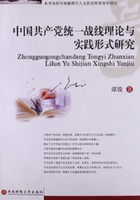He also offended many by his outspoken rebuke of sin, for he aimed at a complete reformation of morals, like Latimer in London and like Savonarola at Florence. He sought to reprove amusements which were demoralizing, or thought to be so in their influence. The passions of the people were excited, and the city was torn by parties; and such was the reluctance to submit to the discipline of the ministers that they refused to administer the sacraments. This created such a ferment that the syndics expelled Calvin and Farel from the city. They went at first to Berne, but the Bernese would not receive them. They then retired to Basle, wearied, wet, and hungry, and from Basle they went to Strasburg. It was in this city that Calvin dwelt three years, spending his time in lecturing on divinity, in making contributions to exegetical theology, in perfecting his "Institutes," forming a close alliance with Melancthon and other leading reformers. So pre-occupied was he with his labors as a commentator of the Scriptures, that he even contemplated withdrawing from the public service of religion.
Calvin was a scholar as well as theologian, and quiet labors in his library were probably more congenial to his tastes than active parochial duties. His highest life was amid his books, in serene repose and lofty contemplation. At this time he had an extensive correspondence, his advice being much sought for its wisdom and moderation. His judgment was almost unerring, since he was never led away by extravagances or enthusiasm: a cold, calm man even among his friends and admirers. He had no passions; he was all intellect. It would seem that in his exile he gave lectures on divinity, being invited by the Council of Strasburg; and also interested himself in reference to the Sacrament of the Lord's Supper, which he would withhold from the unworthy. He lived quietly in his retreat, and was much respected by the people of the city where he dwelt.
In 1539 a convention was held at Frankfort, at which Calvin was present as the envoy of the city of Strasburg. Here, for the first time, he met Melancthon; but there was no close intimacy between them until these two great men met in the following year at a Diet which was summoned at Worms by the Emperor Charles V., in order to produce concord between the Catholics and Protestants, and which was afterwards removed to Ratisbon. Melancthon represented one party, and Doctor Eck the other. Melancthon and Bucer were inclined to peace; and Cardinal Contarini freely offered his hand, agreeing with the reformers to adopt the idea of Justification as his starting point, allowing that it proceeds from faith, without any merit of our own; but, like Luther and Calvin, he opposed any attempt at union which might compromise the truth, and had no faith in the movement. Neither party, as it was to be expected, was satisfied. The main subject of the dispute was in reference to the Eucharist. Calvin denied the real presence of Christ in the Sacrament, regarding it as a symbol,--though one of special divine influence. But on this point the Catholics have ever been uncompromising from the times of Berengar. Nor was Luther fully emancipated from the Catholic doctrine, modifying without essentially changing it. Calvin maintained that "This is my body"meant that it signified "my body." In regard to original sin and free-will, as represented by Augustine, there was no dispute; but much difficulty attended the interpretation of the doctrine of Justification. The greatest difficulty was in reference to the doctrine of Transubstantiation, which was rejected by the reformers because it had not the sanction of the Scriptures; and when it was found that this caused insuperable difficulties about the Lord's Supper, it was thought useless to proceed to other matters, like confession, masses for the dead, and the withholding the cup from the laity. There was not so great a difference between the Catholic and Protestant theologians concerning the main body of dogmatic divinity as is generally supposed. The fundamental questions pertaining to God, the Trinity, the mission and divinity of Christ, original sin, free-will, grace, predestination, had been formulated by Thomas Aquinas with as much severity as by Calvin.
The great subjects at issue, in a strictly theological view, were Justification and the Eucharist. Respecting free-will and predestination, the Catholic theologians have never been agreed among themselves,--some siding with Augustine, like Aquinas, Bernard, and Anselm; and some with Pelagius, like Abelard and Lainez the Jesuit at the Council of Trent (a council assembled by the Pope, with the concurrence of Charles V. of Germany and Francis I. of France), the decrees of which, against the authority of Augustine in this matter, seem to be now the established faith of the Roman Catholic Church.
After the Diet of Ratisbon, Calvin returned to Geneva, at the eager desire of the people. The great Council summoned him to return;every voice was raised for him. "Calvin, that learned and righteous man," they said, "it is he whom we would have as the minister of the Lord." Yet he did not willingly return; he preferred his quiet life at Strasburg, but obeyed the voice of conscience. On the 13th of September, 1541, he returned to his penitent congregation, and was received by the whole city with every demonstration of respect; and a cloth cloak was given him as a present, which he seemed to need.















